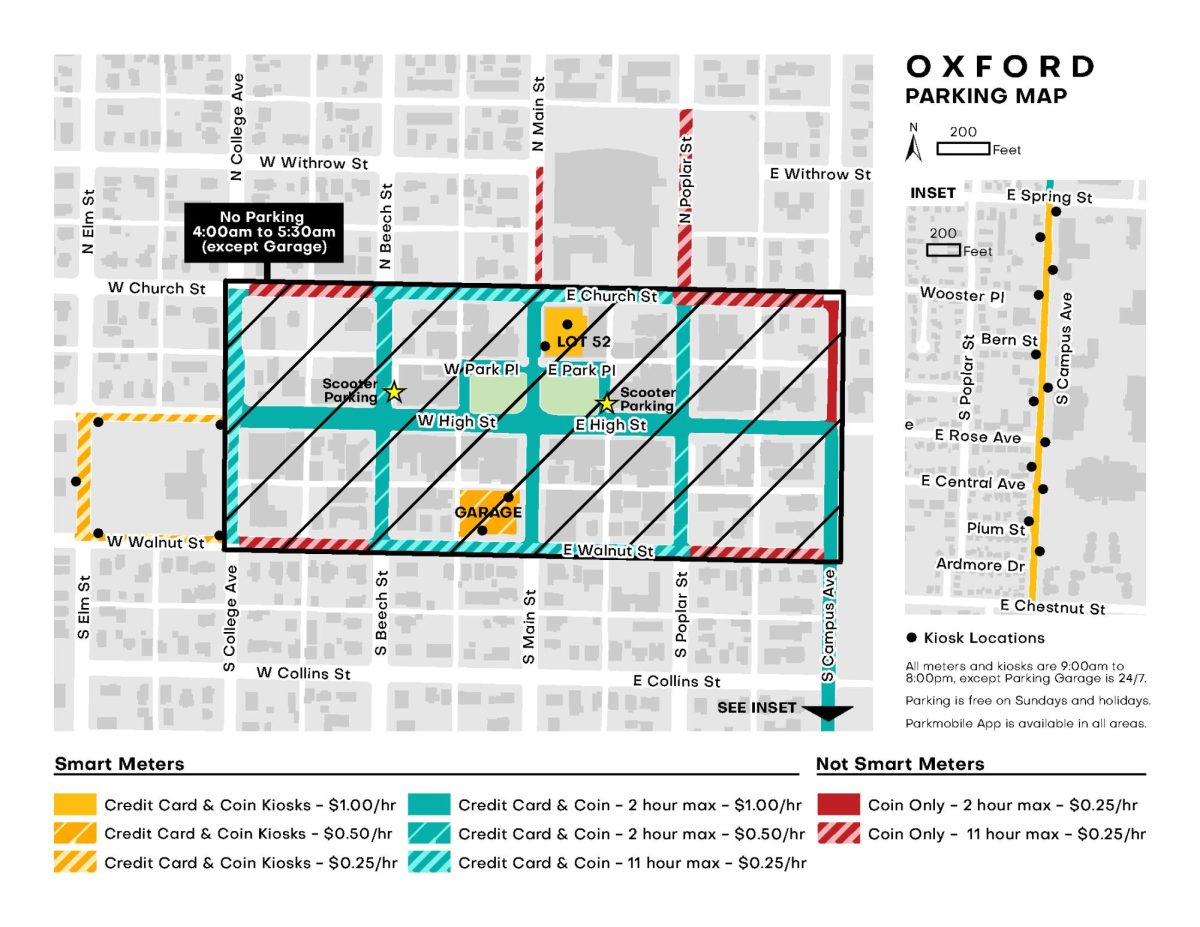Asian drivers received more than 29% of the traffic violations given out by the Oxford Police Department in 2018, a figure that is disproportionate to their percentage of the city’s population, according to data recently released by the department.
Despite the amount of traffic violations, Asians account for only 3.53% of the arrests for all crimes made in the city last year. Oxford Police Chief, John Jones said he isn’t surprised by the numbers.
“We do have a growing international student population here (at Miami University),” Jones said. “Many of them are from China or other Asian countries, and what we’ve found, just anecdotally, since that influx happened, is they’re inexperienced drivers. Many of them don’t have cars in China.”
In the fall of 2018, 2,287 of the 2,739 international graduate and undergraduate students at Miami were from China. India ranked second with 85 students.
Claire Wagner, Director of Miami University News and Communications, said she does not believe the students are being targeted because of their race.
“I don’t perceive any (bias of policing toward international students),” Wagner said. “They’re living in a very different country, and if they do have vehicles, it’s not always obvious (that they need) to keep up with the regulations that they should. Imagine yourself living somewhere where you should get a license, you have to take the test to do it, but still you’re not driving a lot, and that might just be the cause of some confusion,” she said.
The Oxford Police Department data lists only citations, not total traffic stops. Multiple citations can result from one stop.
“I think what’s happening is you’re seeing two or three charges coming out of a stop for someone who may not have a driver’s license,” Jones said. “The other thing we see is some of the stops are initiated based upon registration violations, so expired plates for instance.”
Jones said this doesn’t happen every stop, but it’s not a rare occurrence.
Another situation his department has faced in recent years is graduating international students handing off cars to international underclassmen without the proper swap of paperwork. Cars have been impounded because the person receiving the car continued to drive it with expired tags or other registration problems.
“We’ve ended up with several cars in our impound lot, where the owner’s in China, and they have to make special arrangements and get some sort of power of attorney (form) signed for us to release it,” Jones said. “It’s an anomaly that’s happened several times in the last few years.”
Jones said the department is trying to work with Miami to curb the trend. In the past, information about lawful driving in the United States has been relayed to international students at their first-year student orientation.
“But there’s just so much information that they’re bombarding these students with, driving is not always necessarily their top thing they need to worry about (during that weekend),” Jones said.
The data for previous years was not broken down by race, so Jones was unable to identify if the 2018 figures were on par with their typical averages.
Overall, Caucasians made up 73% of all charges in 2018, while people between the ages of 18 and 25 tallied 67 % of charges.
“I think I can look at each individual stop and each individual arrest, and I’m confident to say race isn’t a factor in it,” Jones said. “Because I’ve got body cameras (on police officers). I can go look at this, I can see it.”
Misdemeanors were the most common type of criminal citation issued by the Oxford Police Department. The category, which includes citations like underaged drinking and theft, comprised nearly 63% of all the criminal citations issued in 2018.
Civil citations, such as noise violations, were not included in the data.
In the breakdown, the race of a person is determined by the judgment of the responding officer. Oxford Police Department does not ask about a person’s ethnicity during stops, Jones said.
Jones said the lack of a suitable benchmark is a shortcoming of data like this. Many cities use censuses, but Jones said those are usually outdated and not applicable to college towns like Oxford, because many Miami students list their permanent residence as their home away from school.
The Oxford Police Department is exploring new means of collecting similar race data and finding an appropriate point of reference.





